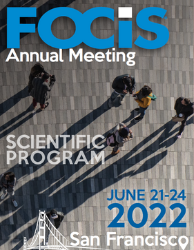CRISPR-based Functional Genomics in Primary Human T Cell Subsets Decode cis and trans Regulation of the CD28, CTLA4, and ICOS Costimulatory Locus
- CM
Cody Mowery
MD/PhD Student
UCSF, Gladstone Institutes
SF, California, United States - HV
Hans Dieter Volk
Institute of Medical Immunology, Charité Universitätsmedizin Berlin
Berlin, Berlin, Germany
Presenting Author(s)
Chair(s)
Costimulation is essential for complete T cell activation, requiring the coordinated expression of various surface proteins including those encoded by CD28 family members CD28, CTLA4, and ICOS. Interestingly, these three genes lie adjacently in a topologically-associating domain (TAD) and are believed to have arisen through duplications of CD28, though they have evolved opposing functions and exhibit expression differences across cell states and T cell subsets. We hypothesized that distinct cis- and trans-regulatory circuits emerged to uniquely govern the expression of each gene. Therefore, we tiled CRISPR interference (CRISPRi) across the 1.44Mb TAD in primary human conventional (Tconv) and regulatory T (Treg) cells to functionally profile cis-regulatory elements (CREs) controlling expression of CD28, CTLA4, and ICOS. We find that inhibiting the transcriptional start site of one gene (but not gene KO) enhances the expression of an adjacent gene, potentially due to redirection of shared CREs to the un-inhibited promoter. Moreover, we find distinct CREs responsible for constitutive expression of CTLA4 in Treg cells but stimulation-responsiveness in Tconv cells. We also find evidence of a single CRE that negatively regulates CD28 at baseline but positively regulates CTLA4 upon restimulation. Lastly, we characterize mechanisms of CRE control by identifying upstream regulators of target genes via CRISPR knockout screening. Our work nominates ZNF217, a zinc finger protein with no known function in human T cells, as a novel negative regulator altering chromatin accessibility in the locus. We present a framework for functional characterization of modules of gene regulation in primary human CD4+ T cells.

